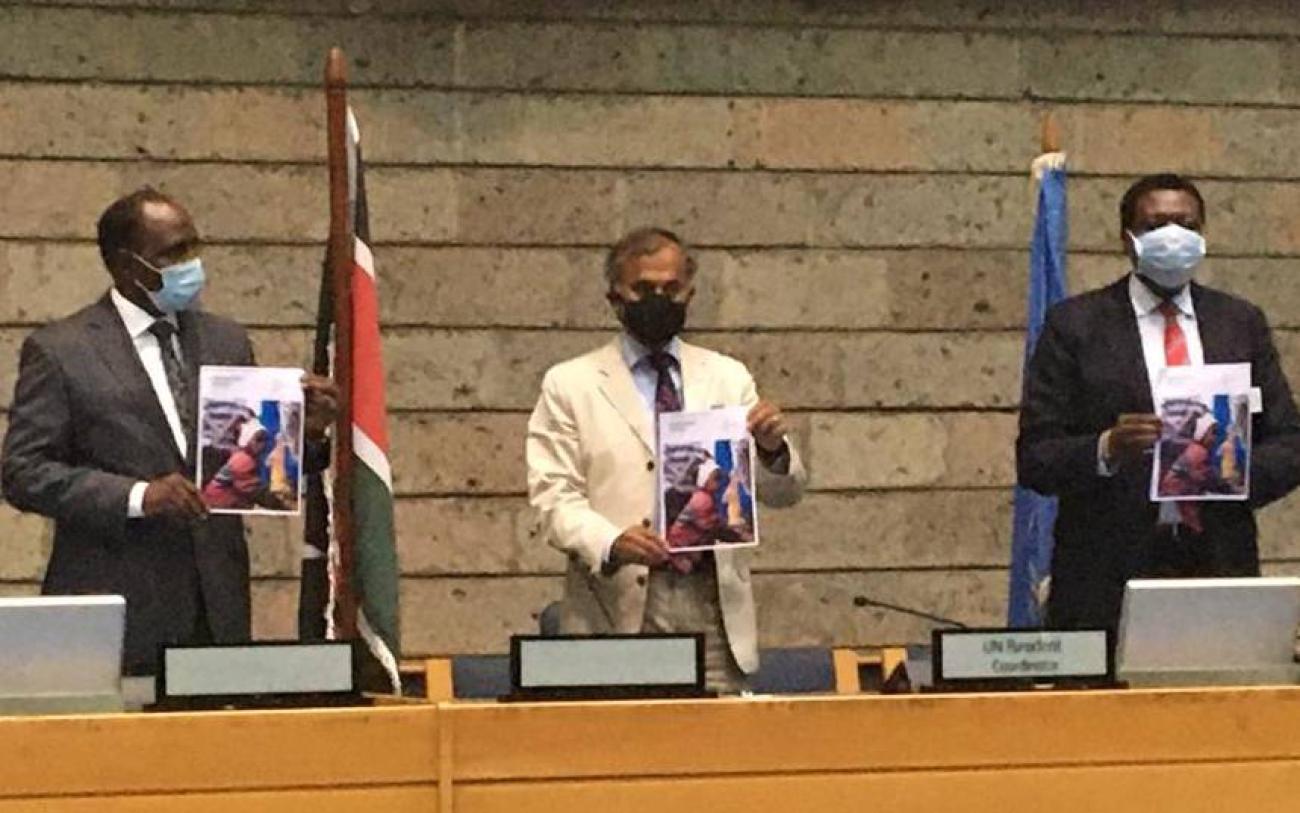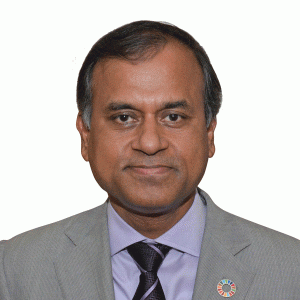I write this as my final message to all of you as I prepare to transition to my new role as the UN RC in China. My last working day is going to be 13 January 2021 in Kenya.
If you recall my end of year message in December 2019, was about “Flipping The Orthodoxy” - The next decade of Action for the SDGs in Kenya.
We still have to press on with vigour and enterprise to “flip the orthodoxy”. Now more than ever. Those are the marching orders of the Deputy Secretary-General, Ms Amina Mohammed.
When COVID-19 was declared a global pandemic, no one would have contemplated the kind of multi-dimensional and wide-ranging social, economic, and environmental havoc that it is now wreaking across countries and communities. About a year into the pandemic, we still do not know how the pandemic will play out in the future, with the best hopes currently lying with the recently-approved vaccines.
The year 2020 saw the UN launch the Decade of Action to accelerate progress on the Sustainable Development Goals, and the size of the challenge has increased exponentially mainly due to COVID-19. At the July 2020 session of the UN High-level Political Forum for Sustainable Development, UN Secretary-General António Guterres said that COVID-19 could set us back years and even decades, leaving countries with massive fiscal and growth challenges.
The pandemic has not only revealed latent inequalities and set millions on the path towards extreme poverty, it has also rolled back the progress made towards achieving the 2030 Global Goals. The World Bank estimates that the pandemic could also drive up to 40 million people into extreme poverty in Africa in 2020, erasing at least five years of progress in fighting poverty.
Kenya has developed a two-year Socio-Economic Recovery Plan (SERP) to ensure that COVID-19 response and long-term development plans are people-centered, focused on ensuring inclusiveness and equality. Our task as UN in Kenya is to get into lock-step with the plans at national and county government levels to implement fit-for-purpose, priority programs that will ensure communities are resilient now and in the coming days, months, and years.
With COVID-19 exposing the inequalities and the disproportionate impact on groups such as older persons, women, youth, children, persons with disabilities, the recovery plans will need to apply a human rights-based approach that ensures that we Leave No One Behind in the quest for equity and justice.
Given the wide-ranging effects of the pandemic, it is clear that our agencies and programmes will require a more coordinated and multi-dimensional response. Only a holistic response based on cross-sectoral collaboration will enable us to respond effectively to the immediate and long-term effects of COVID-19.
Among the immediate impacts of COVID-19, we have witnessed are increased cases of gender-based violence; loss of employment and livelihoods that have put further strain on families; the right to education is at risk for many children, particularly girls; and inequalities in access to water, adequate housing, and health services have heightened vulnerabilities.
The majority of working Kenyans are in the informal sector and are more vulnerable because they lack social protection and access to quality health care; there is a need to reprioritize investments in health as well as social protection programs.
The SG has said that we are in a race against time to adapt to a rapidly changing climate. Sub-Saharan countries will continue to bear the brunt of climate change impacts, and priority programs must focus on helping farmers to adopt climate-smart technologies to increase food productivity towards the key SDGs of reducing hunger and poverty.
As UN Kenya, we have already been working on public-private partnerships to support the country in primary health care investments and in the long term to PPP initiatives in other national priorities such as the Big Four. Going forward, these initiatives will need to focus on those programmes that will yield the most rapid and inclusive recovery pathways.\
One of the outstanding features of UN Kenya’s response to COVID-19 in 2020 was the speed with which we moved to support the government. We confronted a triple crisis. Floods, a locust invasion and the ubiquitous threat of COVID 19. We were the first to send out a Flash Appeal and we quickly repurposed UNDAF funds to priority response programmes. In 2021, we must similarly stay on our toes, ready to respond fast and effectively.
Even in the midst of the challenges of COVID-19, the journey towards the SDGs demands that we must sail, sometimes with the wind and sometimes against it, but we cannot drift nor lie at anchor.
My deepest gratitude to the Government of Kenya, Development Partners, UN Country Team and all staff. It has been a real privilege to serve in Kenya as the UN Resident Coordinator.
I wish you and your loved ones, a pleasant and peaceful festive season and a Happy New Year!
I also take this opportunity to extend a warm welcome to Stephen Jackson the RC (designate) to Kenya. Thank you Medhin for agreeing to hold the fort till Stephen formally arrives.
God Bless and Happy Landings.




